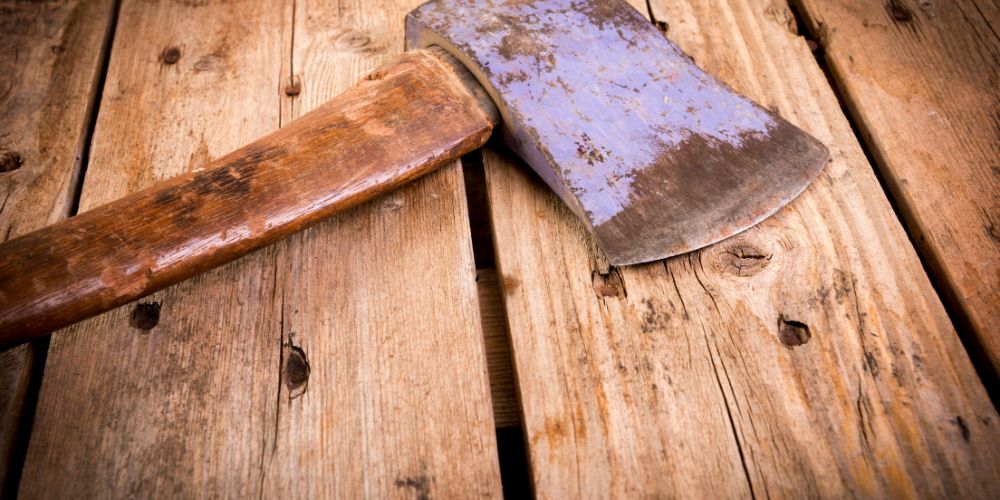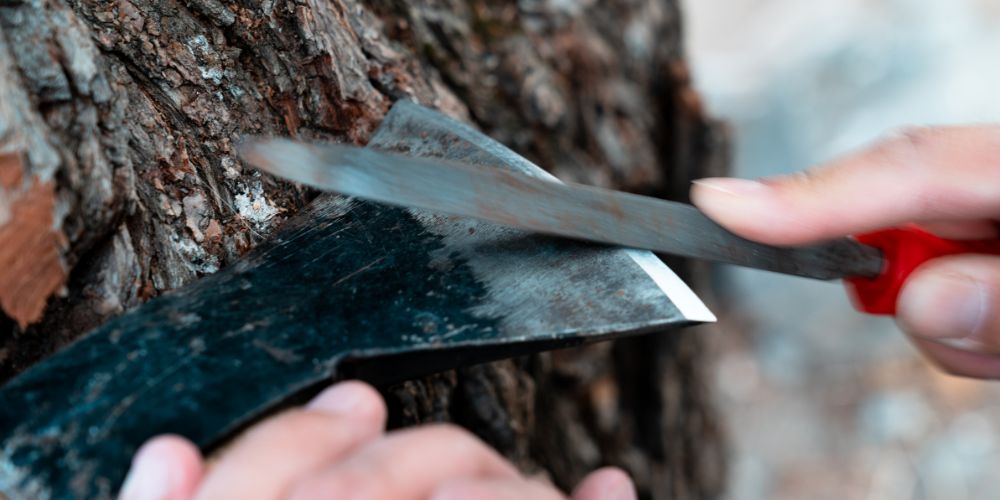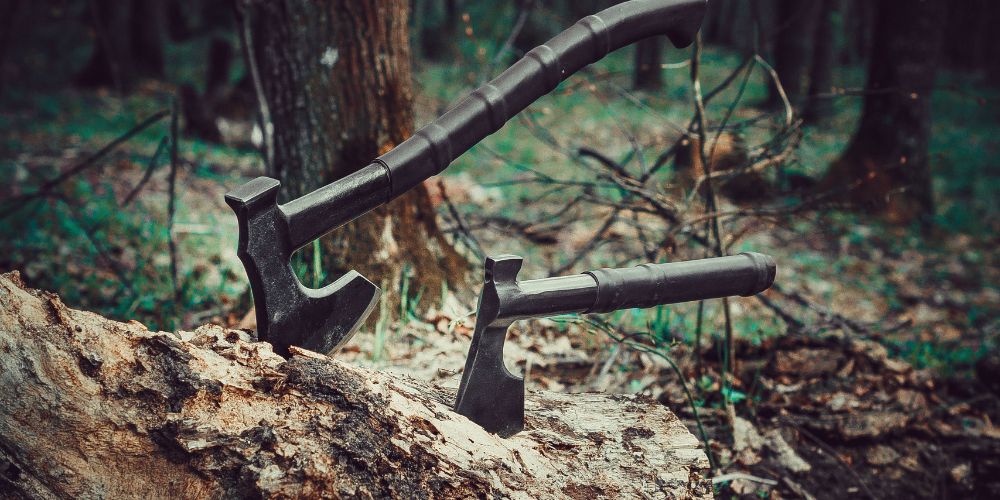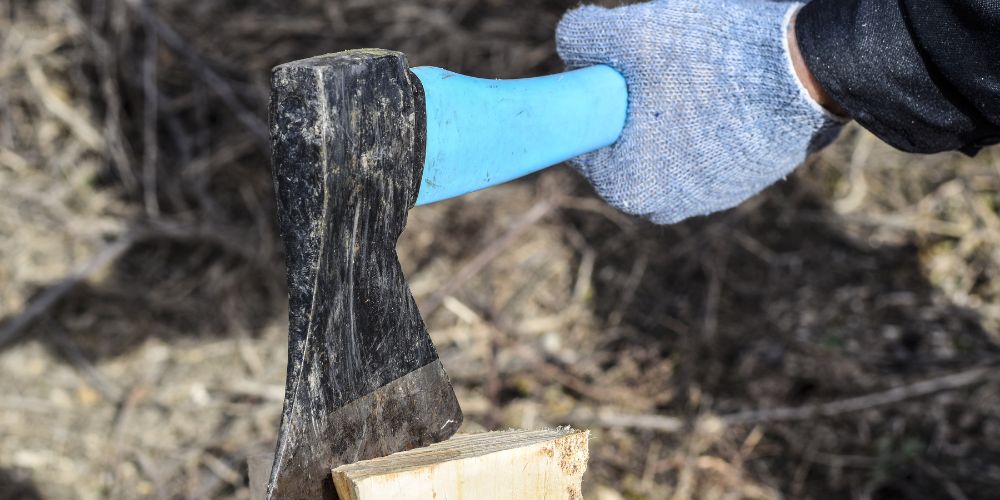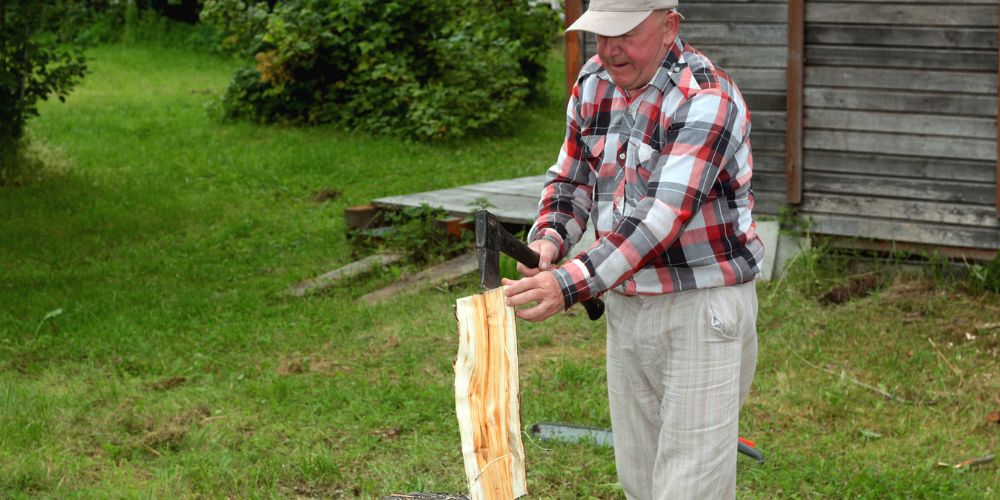Overview
Hatchets are practical instruments with a wide range of applications. They are frequently employed for clearing brush, splitting kindling, and cutting down trees. Hatchets can also be employed as tools for shape and self-defense, as well as for carving.
It’s crucial to take into account aspects like weight, handle length, and blade material while selecting a hatchet. A good hatchet will last for many years and make outdoor chores much simpler.
What Hatchets Used for?
Hatchets are small, one-handed axes that are commonly used for outdoor tasks such as chopping wood, splitting kindling, clearing brush, and even as a weapon in self-defense situations. These versatile tools are a must-have for any outdoor enthusiast or homeowner who wants to tackle tasks around the yard.
Chopping Wood
Wood cutting is one of a hatchet’s main use. Typically, hatchets are used to cut small logs or branches into kindling or firewood. A hatchet’s exact cuts are made possible by its sharp, narrow blade, which also makes it simpler to split wood and provide kindling for a fire. It’s crucial to pick a hatchet with a robust grip and a sharp, long-lasting blade when using one to chop wood.
Clearing Brush
Brush clearance is a further typical application for hatchets. Hatchets make it simple to clear a path or establish a campground by easily cutting through dense undergrowth and small trees.
It’s crucial to pick a hatchet with a longer handle and a heavier head while clearing brush because this will provide you greater leverage and make it simpler to cut through the foliage.
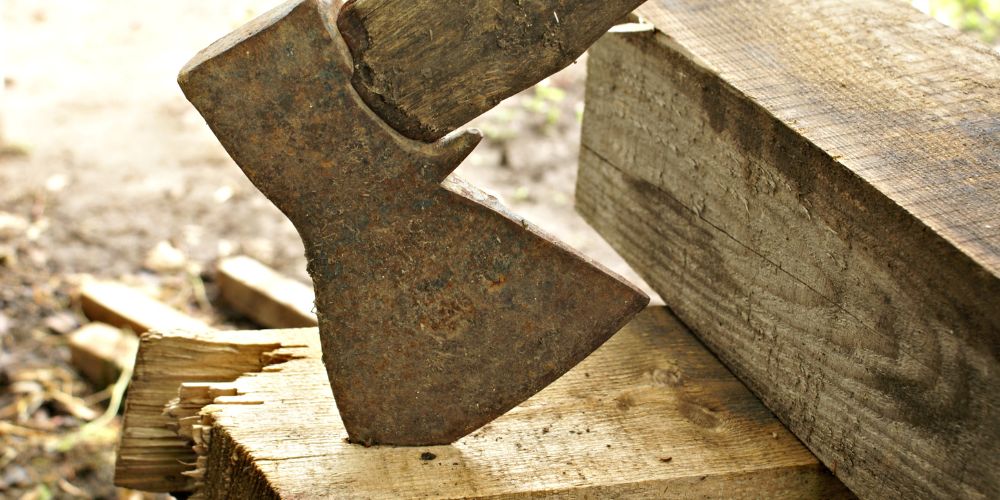
Carving and Shaping Wood
Hatchets can be used to carve and shape wood in addition to chopping and clearing. A hatchet is a wonderful tool for cutting little wooden objects like spoons or bowls because of its smaller size, which makes it easier to manage than a full-sized axe. It’s crucial to pick a hatchet with a sharp, narrow blade and a comfortable grip that enables precision cutting when using one for carving.
Self-defense Weapon
Hatchets can also be employed as a weapon for self-defense. A hatchet is a practical implement for self-defense in the woods or in an emergency because of its compact size and portability. It’s crucial to pick a hatchet for self-defense that has a solid grip and a sharp, resilient blade that may cause significant harm.
FAQs
1. What tasks can I use a hatchet for?
A hatchet can be used for chopping wood, splitting kindling, clearing brush, carving, and even as a weapon in self-defense situations.
2. What factors should I consider when choosing a hatchet?
When choosing a hatchet, it’s important to consider factors such as weight, handle length, and blade material, as these will affect the hatchet’s performance and durability.
3. What materials are commonly used for hatchet blades?
Common materials used for hatchet blades include carbon steel, stainless steel, high carbon stainless steel, titanium, and ceramic.
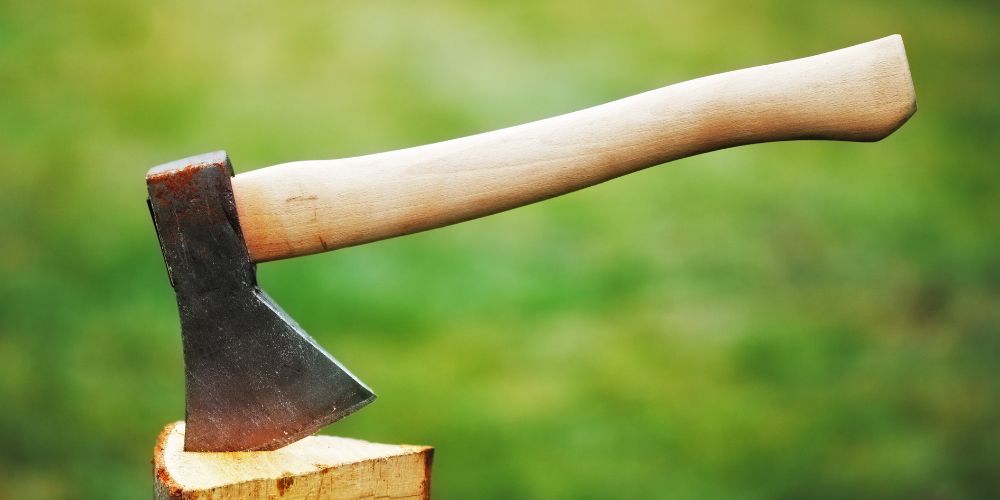
4. Can hatchets be used for self-defense?
Yes, hatchets can be used as a weapon in self-defense situations due to their small size and portability.
Conclusion
Hatchets are adaptable tools that can be used for a range of jobs, including self-defense and clearing brush as well as chopping wood, splitting kindling, and clearing brush. It’s crucial to take into account aspects like weight, handle length, and blade material while selecting a hatchet.
Carbon steel, stainless steel, high carbon stainless steel, titanium, and ceramic are frequently used for hatchet blades. A good hatchet will last for many years and make outdoor chores much simpler.
